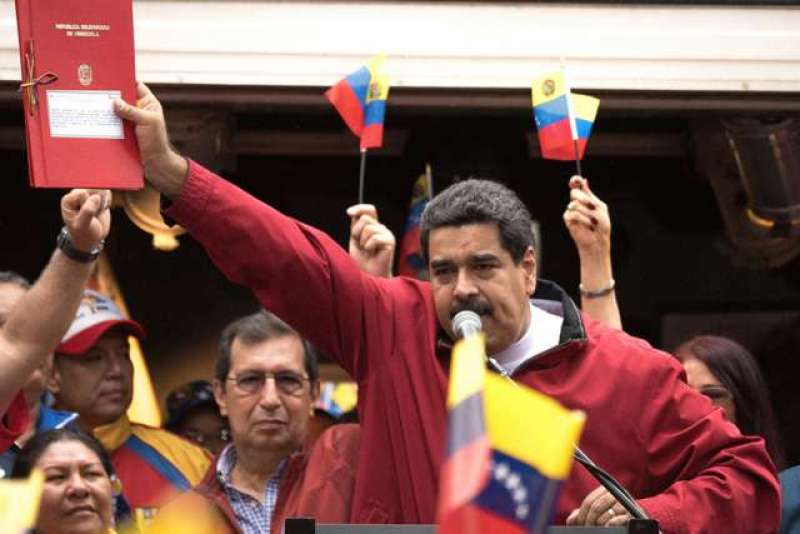The director of Caritas Venezuela, Janeth Márquez, has said they are again asking the government of Nicolas Maduro to open “a wide door to humanitarian aid” to alleviate shortages due to the economic crisis.
In a statement broadcast April 24 by EWTN Noticias, Márquez also requested that this humanitarian channel include the participation of more agents. In addition she that that it is necessary “for the criteria to be clear on availability, transparency and especially how and where the humanitarian aid is going to arrive.”
Caritas Venezuela has been requesting permission for the entry of humanitarian aid since 2015 to deal with the emergency resulting from the shortage of food and medicine.
Márquez explained that when Nicolas Maduro announced permission to the Red Cross for the entry of aid April 11 this was “very specific” and covered “only healthcare issues having to do with medical and surgical supplies.”
Márquez said that while the permission was in the process of being granted, Caritas began monitoring the situation to identify the priority needs.
“We view (the permission) positively because it opens the door to what now means cooperation, the solidarity of other countries; but it continues to be very specific,” Márquez said.
However, she noted the need for permission for the entry of more aid on the international level, with the participation of more actors.
Regarding the challenges to social action by the Catholic Church, she explained that “there are many problems that we have, and so the Church has specific challenges: the first is to prioritize the issues, i.e. where we can work.”
She said that the Church has prioritized children under five, pregnant and nursing women, abandoned elderly, and migrants. “The challenge is to be able to prioritize, save lives and alleviate suffering,” she stated.
A second challenge is to look after the “caregivers” supporting the work of the Church: “Our people who are providing care and aid also have problems,” and so it is important to formulate policies to assist them, she said.
“The third challenge is related to time and geography, since life-long aid cannot be considered.” Márquez noted that “the Church has the challenge of advocating so the changes are necessarily structural.”
Regarding how to collaborate with the work of Caritas, Márquez said the first way “is to help us make the problem visible.” Secondly, “for people to advocate in their countries so that international aid can strengthen changes in Venezuela.”
In addition, people can “help civil society organizations or the Church so they can develop, for example, centers to care for malnourished children, to buy the requirements of water, hygiene and food.”
Márquez expressed her gratitude for the collaboration of many people. “All this solidarity that comes from door to door helps the Church continue to work and serve her people, as well as to minister to the most vulnerable,” she said.
Finally, she encouraged collaborating with Caritas Venezuela, and to continue to pray that “humanitarian aid can enter Venezuela and improve the situation in the country.”
The last newsletter from Caritas Venezuela, published in November 2018, said that the evaluation carried out on children in seven dioceses revealed that 57% of minors were malnourished, or at risk of becoming so.
They also indicated that 31% of families had not had running water in the last week or that the supply was less than three days a week.
Regarding the migration factor, 55% of households responded that some member of their family had emigrated. According to the households interviewed, 40% left the country in search of better economic opportunities.
Under Maduro's socialist administration, Venezuela has been marred by violence and social upheaval, with severe shortages and hyperinflation leading 3 million to emigrate.

